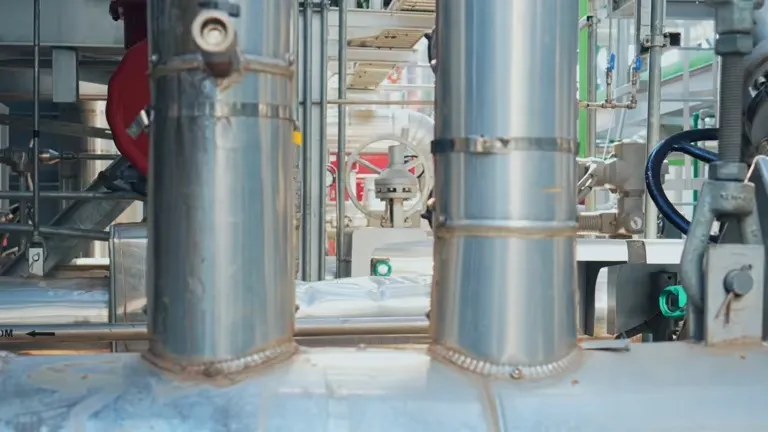
Boiler Tune-Up in Lititz, PA
Keeping your boiler tuned and safe is a top priority for Lititz homeowners. Winters in Lancaster County are cold and can be long, and many local homes use hydronic heating systems—often older cast-iron boilers, natural gas, oil, or propane-fired units. A professional boiler tune-up in Lititz, PA focuses on burner cleaning, pilot and ignition inspection, fuel pressure and combustion optimization, thermostat and control calibration, and a thorough safety inspection so your system runs efficiently, reliably, and safely when you need it most.
Common boiler problems in Lititz homes
- Uneven heat or cold radiators — often caused by trapped air, unbalanced zones, or failing circulator pumps.
- Sooty or yellow flame — indicates poor combustion and higher carbon monoxide and fuel waste.
- Short cycling or frequent drops in pressure — common in older boilers or systems with failing controls or leaks.
- Noisy operation — kettling, banging, or gurgling can point to scale, low flow, or trapped air.
- Higher-than-normal fuel bills — inefficient combustion, poor control calibration, or worn burner components reduce efficiency.
- Corrosion and leaks in older cast-iron sections or near fittings — accelerated by freeze/thaw cycles and hard water in some systems.
What a professional Boiler Tune-Up includes
A comprehensive boiler tune-up in Lititz, PA is thorough and methodical. Key elements include:
- Burner cleaning and inspection
- Remove soot and deposits from the burner, combustion chamber, and heat exchanger to restore efficient heat transfer.
- Inspect nozzle, electrodes, and ignition components for wear and correct spacing.
- Pilot and ignition inspection
- Check pilot assemblies or modern electronic ignition for reliable start-up.
- Test flame sensors, thermocouples, and safety interlocks to ensure the system shuts down safely if ignition fails.
- Fuel pressure and combustion optimization
- Measure and adjust fuel pressure for oil or gas to manufacturer specifications.
- Perform combustion analysis (O2, CO2, CO, and stack temperature) and fine-tune the air-to-fuel ratio to maximize efficiency and minimize emissions.
- Thermostat and control calibration
- Verify thermostat accuracy and recalibrate if needed.
- Inspect and test zone valves, circulator pumps, aquastat/pressure controls, outdoor reset controls, and sequencing to ensure proper zone operation and temperature stability.
- Safety inspections and testing
- Test safety devices (pressure relief valve, low-water cutoff, backflow preventer where applicable).
- Inspect flue and venting for corrosion, blockages, or improper clearances that can cause carbon monoxide hazards.
- Check for fuel leaks and verify combustion air pathways.
- Hydronic system checks and minor adjustments
- Check system water pressure and top up if required; inspect expansion tank condition.
- Bleed air from radiators or system air separators and check for trapped air points.
- Inspect circulating pumps and belts, lubricate bearings if applicable.
- Efficiency improvements and recommendations
- Recommend or install pipe insulation, zone balancing adjustments, or upgrade control settings (programmable thermostats/outdoor reset) to lower fuel use.
- Identify when more extensive measures—power flushing, heat exchanger repairs, or control upgrades—will yield significant savings.
Boiler tune-up checklist and expected time on site
Typical residential boiler tune-up checklist items:
- Visual inspection of boiler, piping, and venting
- Burner and combustion chamber cleaning
- Combustion test and adjustment
- Ignition/pilot and safety control testing
- Thermostat and control calibration
- Check and adjust fuel pressure (gas or oil)
- Inspect and test pumps, valves, expansion tank, pressure
- Bleed zones and radiator inspection
- Provide maintenance notes and recommendations
Expected time on site:
- Most single-family residential gas or propane boilers: 45–90 minutes.
- Oil-fired boilers or systems requiring deeper burner cleaning or nozzle replacement: 90–180 minutes.
- Older, multi-zone, or radiator-heavy systems may require additional time for bleeding, balancing, or troubleshooting.
Recommended tune-up intervals
- Annual tune-up before the heating season: recommended for virtually all residential boilers in Lititz, PA. Performing service in late summer or early fall ensures reliable start-up and peak efficiency during winter.
- Oil-fired or high-use systems: consider semiannual inspections if the boiler is older, heavily used, or if you experience frequent cycling or soot buildup.
- New high-efficiency condensing boilers: annual inspection still recommended to verify condensate lines, controls, and combustion performance.
- Systems with known issues (persistent leaks, noisy operation, or frequent trips): schedule follow-up inspections as advised by your service technician.
Benefits of regular boiler tune-ups
- Improved fuel efficiency and lower heating bills due to optimized combustion and clean heat exchange surfaces.
- Increased system reliability and fewer emergency breakdowns during cold spells.
- Extended equipment life by preventing accelerated wear from poor combustion, cycling, or water quality problems.
- Enhanced safety: tuned combustion and clear venting reduce carbon monoxide risk and fuel leak hazards.
- Documentation for warranty compliance and better resale value for homes with maintenance history.
Practical maintenance tips between tune-ups
- Keep the boiler area clear of clutter and combustible materials.
- Monitor system pressure and heater behavior; note leaks, unusual noises, or temperature inconsistencies.
- Periodically check radiators for trapped air and bleed them to eliminate cold spots.
- Maintain working carbon monoxide detectors on each floor—no boiler substitute for a detector.
- Insulate accessible hot water pipes and consider programmable thermostats or outdoor reset controls to smooth operation.
A proper Boiler Tune-Up in Lititz, PA is an investment in safety, efficiency, and comfort. With cold winters and many older hydronic installations in the area, timely annual maintenance, combustion testing, and control calibration keep your system running cleanly and reliably through the season.


Enjoy flexible financing options that make upgrading or repairing your HVAC system easy and budget-friendly.










